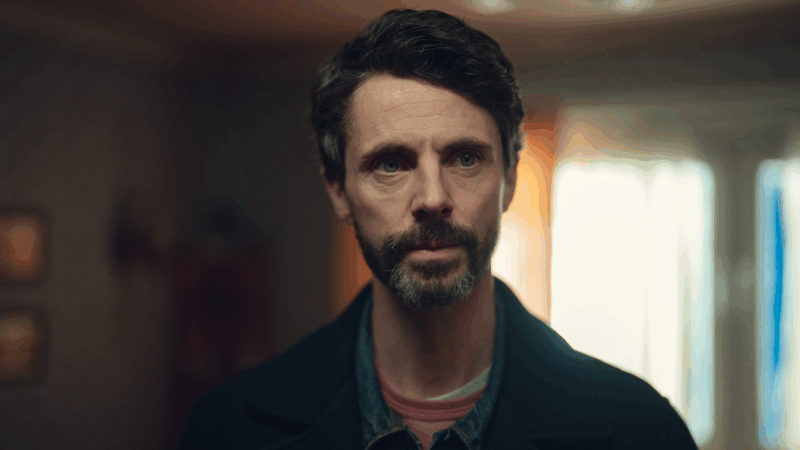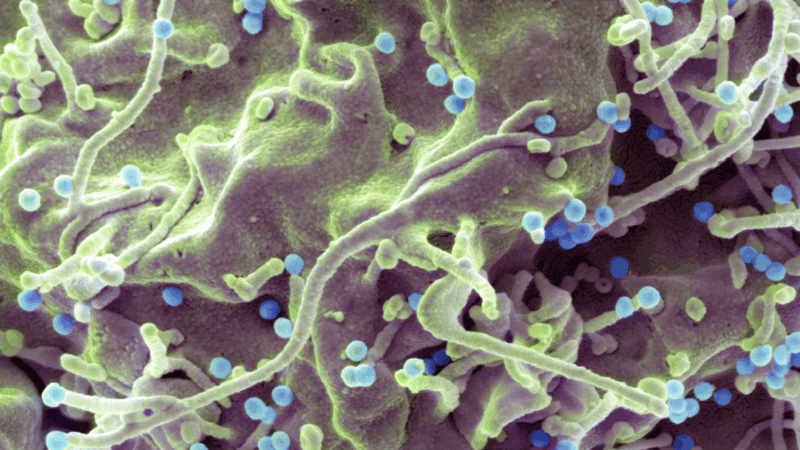Cold case mystery ‘Dept. Q’ focuses more on the characters than crime
The limitation and allure of genre stories is that they reshuffle the same handful of ideas and characters. Romance fiction is teeming with Cinderellas and Darcys. Sci-fi and fantasy keep cranking out Chosen Ones like Luke Skywalker and Katniss Everdeen. As for cop stories, they’re addicted to anti-social loners who, from Dirty Harry to Inspector Morse, are as good at raising hackles as they are at solving crimes.
One of this band is Detective Chief Inspector Carl Morck in the new Netflix series Dept. Q. Based on the first of 10 Nordic noir novels by Danish writer Jussi Adler-Olsen, the story has been retooled by Scott Frank, who’s done everything from scripting Spielberg movies to making The Queen’s Gambit. Frank transplants the action from Copenhagen to Edinburgh and makes the hero — an English outsider in Scotland — even less likable.
Matthew Goode stars as Morck, a DCI who doesn’t suffer fools gladly and finds virtually everyone a fool. He’s recovering from an ambush that killed one officer and left Morck both wounded and feeling guilty that his one good friend, DCI James Hardy, was paralyzed in the shooting.
Because his colleagues can’t stand him, the boss puts Carl in charge of a brand-new section, Department Q, which has been created to solve high profile cold cases that will give the police good publicity. Sounds like a prime gig, except that Department Q has only one detective — Carl — and is housed in the precinct’s grotty basement.
At first Carl approaches his mission in the same cynical spirit. He can’t be bothered with the stack of cold case files he’s been given. This changes thanks to the Syrian exile Akram, drolly played by Alexej Manvelov, who does menial work for Dept. Q.
Carl and Akram begin looking into the disappearance five years earlier of Merritt Lingard, played by Chloe Pirrie, a prosecuting attorney whose spiky intelligence mirrors Carl’s own. Merritt has scads of people who might have wanted to harm her — crooks she jailed, lovers she dumped, even her ex- boss, the Lord Justice, who may be corrupt.
Carl and Akram soon get help from two others: a young constable named Rose (Leah Byrne) whose bounciness masks her PTSD, and his laid-up old colleague Hardy (Jamie Sives) who does online digging between bouts of physical therapy. This pairing of an insulting boss with a motley team recalls Slow Horses — except here it’s all played straight.
What Carl doesn’t know — but we do — is that Merritt is being held prisoner in some strange metallic container. Indeed, even as we follow the team’s investigation, we get flashbacks to Merritt’s past. Ultimately the two tracks come together.
In truth, it takes quite a while to get there. When the source novel, The Keeper of Lost Causes, was adapted into a Danish movie, it was 96 minutes long. Dept. Q runs more than seven hours over nine episodes. If you’re in it for thrills, you may find your mind wandering.
Frank clearly cares less about the mystery than the characters, starting with the abrasively supercilious Carl, who spends many scenes arguing with his housemates, confronting local toughs, sparring with a police therapist (Kelly Macdonald) and sneering at the detectives trying to solve his shooting. Lanky and good-looking, Goode has a gift for portraying charismatic unlikability, as he showed playing Princess Margaret’s smugly nasty husband, Lord Snowdon, on The Crown. Here, he captures Carl’s reflexive haughtiness yet also lets us glimpse the revealing moments when he registers the existence of people other than himself.
The rest of the largely Scottish cast is equally strong. While the red-haired Byrne gives Rose an appealingly wounded spunk, Steevis imbues Hardy with a menschiness that impresses even Carl. Most enjoyable of the bunch is Manvelov, whose Akram is a paragon of seductively low-key intelligence. His confident calm suggests a personal history back in Syria that it may be better not to know.
Although Carl is supposedly the brains of the group, nearly all the useful discoveries are made by his team. And this hints at one of the very Nordic themes of Dept. Q: the superiority of trusting teamwork to unruly individualism. Carl thinks of himself as the smartest man in every room. But without the help of those around him, he’s just an unhappy soul with intelligence to burn.
This quiet epic is the top-grossing Japanese live action film of all time
The Oscar-nominated Kokuho tells a compelling story about friendship, the weight of history and the torturous road to becoming a star in Japan's Kabuki theater.
The Live Nation trial could reshape the music industry. Here’s what you need to know
On Tuesday opening statements will begin for the federal antitrust trial against Live Nation, one of the largest entertainment companies in the world.
A new one-a-day-pill holds promise for HIV’s ‘forgotten population’
It's designed to take the place of complicated, multiple drug regimens that many people with HIV need to follow. And it's also beneficial because the HIV virus is always evolving.
For filmmaker Chloé Zhao, creative life was never linear
Director Chloé Zhao used meditation, somatic exercises and dance to inspire the cast and crew of this Oscar-nominated story about William Shakespeare's family.
10 new books in March offer mental vacations
March is always a big one for books – this year is no different. We call out a handful of upcoming titles for readers to put on their radars — offering a good alternative to doomscrolling.
Sen. Chris Coons, D-Del., talks about the war with Iran and upcoming war powers vote
NPR's A Martínez asks Delaware Democrat Chris Coons, a member of the Senate Foreign Affairs Committee, about the war with Iran.







